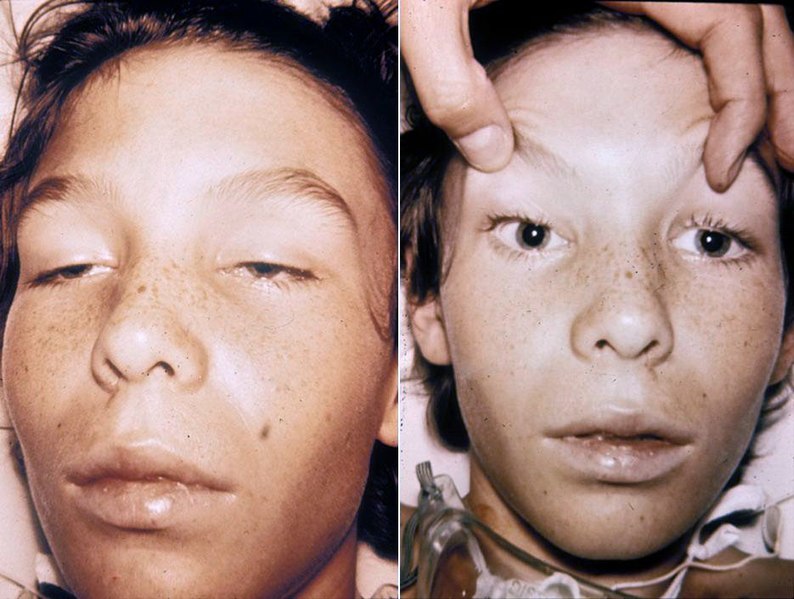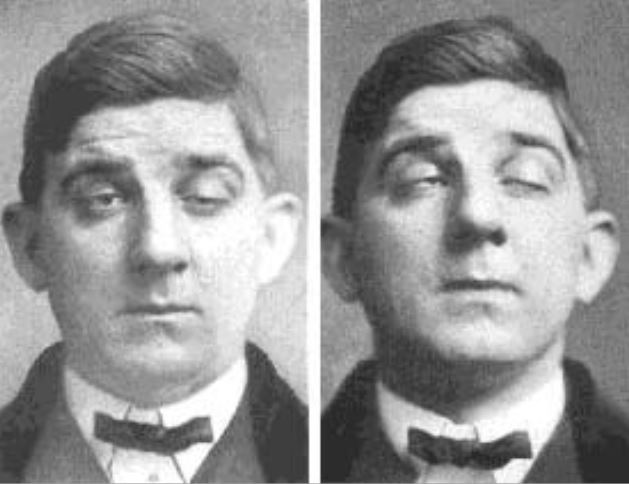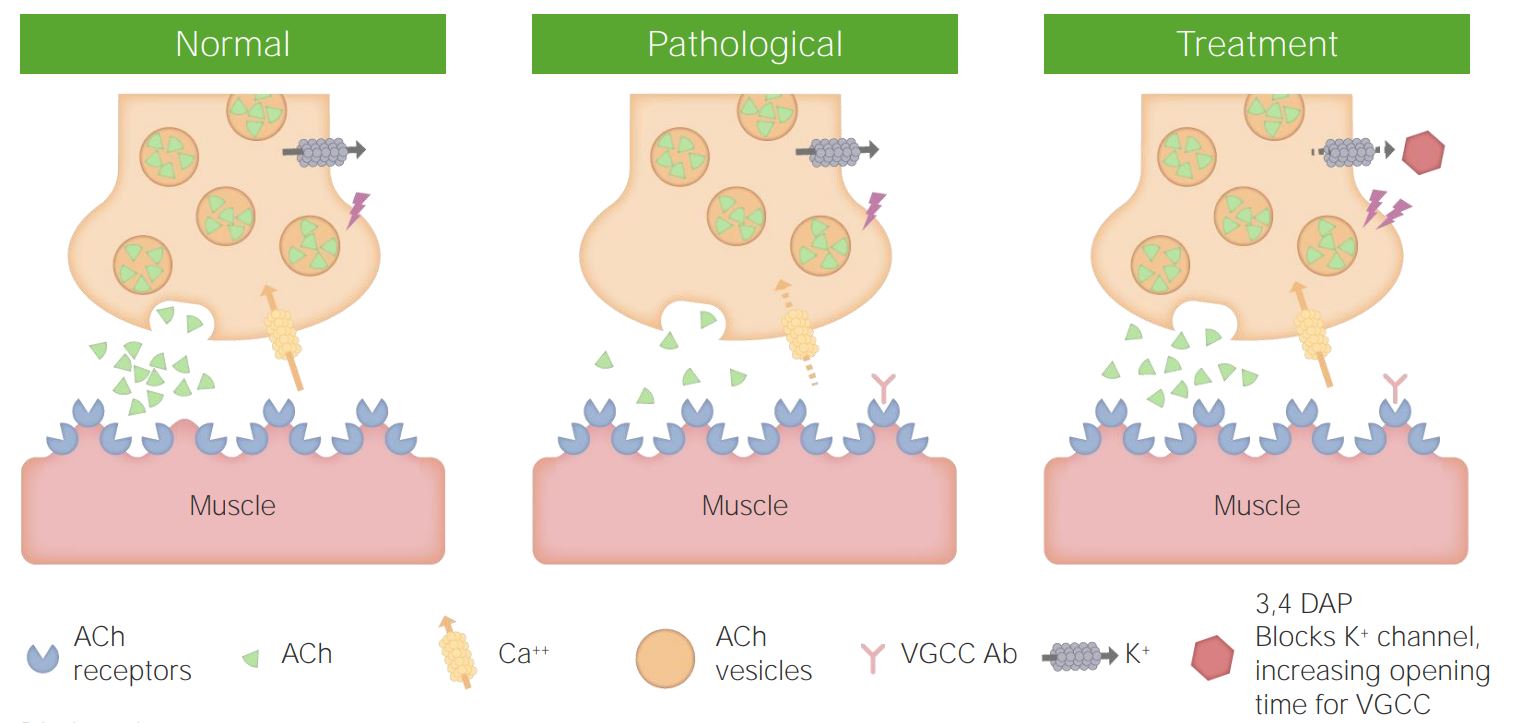Playlist
Show Playlist
Hide Playlist
Neuromuscular Junction Disorders: Summary
-
Slides Strowd Neuromuscular Junction Disorders.pdf
-
Download Lecture Overview
00:01 So in summary, when we think about junctional problems, we're going to know of certain conditions. 00:06 Myasthenia Gravis, Botulism, Lambert-Eaton myasthenic syndrome are the three most important junctional disorders to understand. 00:14 And we're going to review each of those in a subsequent lecture. 00:17 We're going to think of important electrolytes or drugs, heritable, myasthenic syndrome, and some antibiotics that can also affect this area. 00:26 When we're evaluating patients, and worrying about those diagnoses, we want to focus on three things: What is the distribution, sensory findings, and reflex exam for this patient? Neuromuscular junction disorders present with weakness. 00:39 And the weakness can be anywhere in the body, but should include bulbar fibers. 00:43 We should see ptosis, diplopia, dysarthria, and dysphagia. 00:47 The sensory findings are normal. 00:49 The reflex exam is also normal to maybe decreased. 00:52 And we're looking for that important wildcard. 00:54 Presence of fatigable weakness. 00:56 If it's not there, that doesn't mean it's not a neuromuscular junction condition. 01:00 But if we hear fatigability, this should tip us off that this problem may be from the junction. 01:06 And we're going to learn how to use other tests to evaluate patients that are presenting with this type of problem. 01:12 We're going to learn about electrophysiology, both the nerve conduction study, and EMG are important test to figure out where this problem is. 01:19 To exclude muscle and nerve problems, and focus on the neuromuscular junction with repetitive stimulation. 01:26 We're going to learn about important tests, laboratory studies that can also help to evaluate these patients including the acetylcholine receptor antibody, MuSK antibody, and Voltage-Gated Calcium Channel antibodies that you see here.
About the Lecture
The lecture Neuromuscular Junction Disorders: Summary by Roy Strowd, MD is from the course Disorders of the Neuromuscular Junctions.
Included Quiz Questions
Which of the following are the three most common causes of neuromuscular junction disorders?
- Myasthenia gravis, botulism, and Lambert-Eaton myasthenia
- Myasthenia gravis, Lambert-Eaton myasthenia, and anesthetics
- Myasthenia gravis, botulism, and electrolyte abnormalities
- Myasthenia gravis, botulism, and congenital myasthenia
- Myasthenia gravis, Lambert-Eaton myasthenia, and electrolyte abnormalities
Customer reviews
5,0 of 5 stars
| 5 Stars |
|
5 |
| 4 Stars |
|
0 |
| 3 Stars |
|
0 |
| 2 Stars |
|
0 |
| 1 Star |
|
0 |






